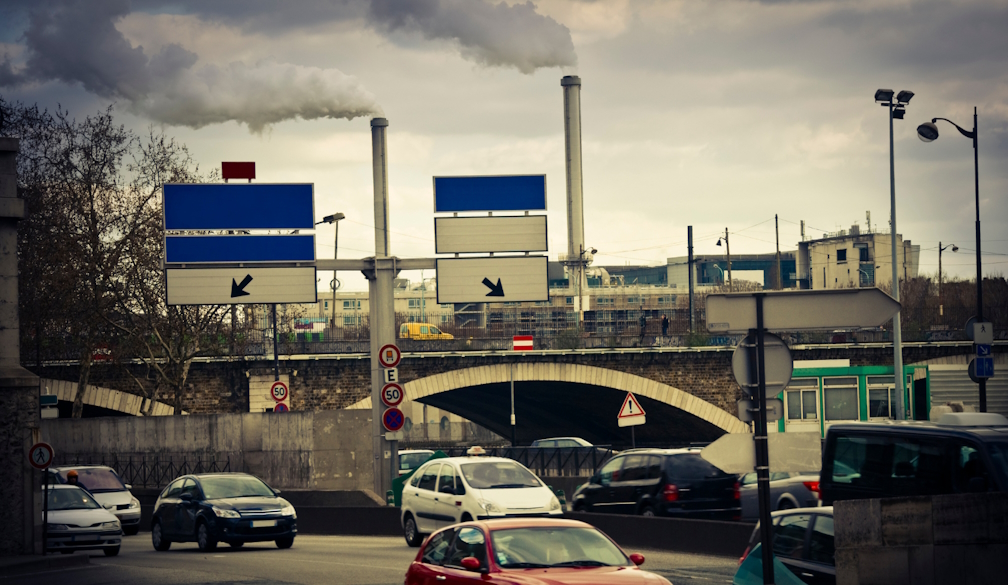A new study has linked traffic noise and pollution to infertility
- Written by Amy L. Winship, Group Leader and Senior Research Fellow, Anatomy and Developmental Biology, Monash University

Roughly one in six[1] people are affected by infertility worldwide.
And with more than half the world’s population now living in urban areas[2], researchers are interested in whether living in noisy and polluted cities could be to blame.
A new study[3] in Denmark has used nationwide data to explore infertility.
It found long-term exposure to air pollution and traffic noise may be associated with higher infertility – but these factors affect men and women differently.
What do pollution and noise do to the body?
We know traffic pollution[4] has undeniable impacts on the environment. Its negative effects on human health[5] are also well established, with links to cancers and heart disease.
Inhaled chemicals from polluted air may also travel to the reproductive tract via the blood. They can reduce fertility[6] by either disrupting hormones or causing direct damage to eggs and sperm.
Effects of traffic noise[7] on health are less clear, but some research suggests this affects stress hormones[8], which could alter fertility.
What did they look at?
This new study[10] was conducted in Denmark, which collects data about every resident into multiple national databases[11] over their lifetime, using a unique identification number.
Nationwide data allows researchers to investigate links between a person’s health and factors such as where they live, their job, education history and family. This method is called “data linkage”.
The study aimed to capture people who were likely to be trying to get pregnant, and therefore at risk of receiving an infertility diagnosis.
Over 2 million men and women were identified as being of reproductive age. The study looked at those who were:
- aged 30 - 45
- living together or married
- with less than two children
- living in Denmark between January 1 2000 and December 31 2017.
It excluded anyone who was diagnosed with infertility before age 30, lived alone or in a registered same-sex partnership. People with incomplete information (like a missing address) were also excluded.
There were 377,850 women and 526,056 men who fit these criteria.
The study did not survey them. Instead, over a five-year period it cross-checked detailed information about where they lived and whether they received an infertility diagnosis, collected from the Danish National Patient Register[12].
Researchers also estimated how much each residential address was exposed to road traffic noise[13] (measured in decibels) and air pollution[14], or how much fine particulate matter (called PM2.5) is in the air.
What did they find?
Infertility was diagnosed in 16,172 men (out of 526,056) and 22,672 women (out of 377,850).
The study found the risk of infertility was 24% greater for men exposed to PM2.5 levels 1.6 times higher than recommended[16] by the World Health Organization.
For women, exposure to traffic noise at 10.2 decibels higher than average (55-60 decibels) was associated with 14% increased infertility risk for those over 35.
Risks were similar based on residing in urban or rural areas, and when accounting for education and income.
What does it suggest?
The study highlights how environmental exposure can have immediate and long-term effects, and may affect male and female reproduction differently.
After puberty, men constantly produce[18] sperm – up to 300 million a day. The impact of environmental changes on male fertility – such as exposure to toxic pollutants — tends to show up more quickly than in females, affecting sperm number and quality.
In contrast, women are born with all their eggs[19], and cannot produce new ones. Eggs have some “damage control[20]” mechanisms to protect them from environmental hazards across a lifetime.
This doesn’t mean eggs are not sensitive to damage. However it may take longer than the five years of exposure this study looked at for the impact on women to become clear.
It is possible even longer-term studies could reveal a similar impact for pollution on women.
Is data linkage a good way to look at fertility?
Data linkage can be a powerful tool to uncover links between environmental exposures and health. This allows assessments in large numbers of people, over long periods of time, like this recent Danish study.
But there are inherent limitations to these types of studies. Without surveying individuals or looking at biological factors – like hormone levels and body mass — the research relies on some assumptions.
For example, this study involved some major assumptions about whether or not couples were actually trying to conceive.
It also calculated people’s exposure to noise and air pollution according to their address, assuming they were at home.
A more precise picture could be painted if information was gathered from individuals about their exposure and experiences, including with fertility.
For example, surveys could include factors like sleep disturbance and stress, which can alter hormone responses[21] and impact fertility. Exposure to chemicals that disrupt hormones[22] are also found at home, in everyday household and personal care products.
In its scale, this study is unprecedented and a useful step in exploring the potential link between air pollution, traffic noise and infertility. However more controlled studies – involving actual measures of exposure instead of estimations – would be needed to deepen our understanding of how these factors affect men and women.
References
- ^ one in six (www.who.int)
- ^ urban areas (esa.un.org)
- ^ new study (press.psprings.co.uk)
- ^ traffic pollution (www.who.int)
- ^ health (www.sciencedirect.com)
- ^ reduce fertility (www.ncbi.nlm.nih.gov)
- ^ traffic noise (academic.oup.com)
- ^ affects stress hormones (www.ncbi.nlm.nih.gov)
- ^ Nicola Fific/Shutterstock (www.shutterstock.com)
- ^ new study (press.psprings.co.uk)
- ^ national databases (link.springer.com)
- ^ Danish National Patient Register (journals.sagepub.com)
- ^ road traffic noise (www.sciencedirect.com)
- ^ air pollution (www.sciencedirect.com)
- ^ Chinnapong/Shutterstock (www.shutterstock.com)
- ^ recommended (www.who.int)
- ^ thiago japyassu/Unsplash (unsplash.com)
- ^ constantly produce (www.ncbi.nlm.nih.gov)
- ^ all their eggs (academic.oup.com)
- ^ damage control (academic.oup.com)
- ^ alter hormone responses (ehp.niehs.nih.gov)
- ^ disrupt hormones (www.sciencedirect.com)

















